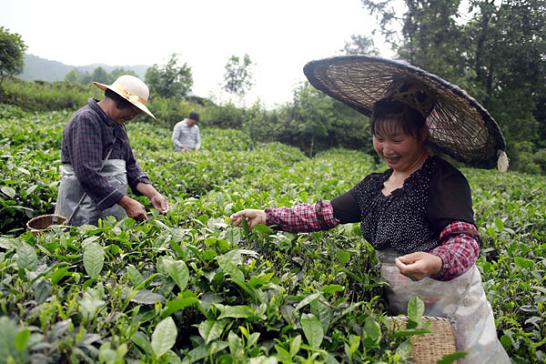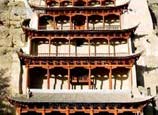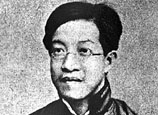
 |
| Tea plantations flourish on the fertile soil of Guizhou's mountains. (Photo by Feng Yongbin/China Daily) |
"Can you feed us," shouted the driver to a woman in the village kitchen.
"How many?"
"Eleven."
"Twenty minutes. Have a walk, see the village, relax," came the assured response.
China exported about 300,000 tons of tea last year, 30 percent of it green.
The art of picking tea is almost as sublime as its taste, and requires a surgeon's delicacy and optical prowess.
"You can never use your nail or sharp edge like a knife," one picker said. "If you do, you cauterize the cut and it turns black. Each leaf has to be torn, delicately, from the plant."
This is no job for the faint-hearted. Sweltering sun, torrential rain, the body poised to strike and then tear the fragile leaves for hours on end. Perched on mountainsides, this may be a job with scenery to die for but it asks a back-aching price.
Guizhou's mountains stand sentinel, guardians of a beauty most tourists in China never see. In rural parts of the province, far from the madding crowd, the three S's — sight, smell and sound — ravish the senses with a ferocity of lovers reunited.


















 Post office demolished by 'mistake' overnight
Post office demolished by 'mistake' overnight


![]()
